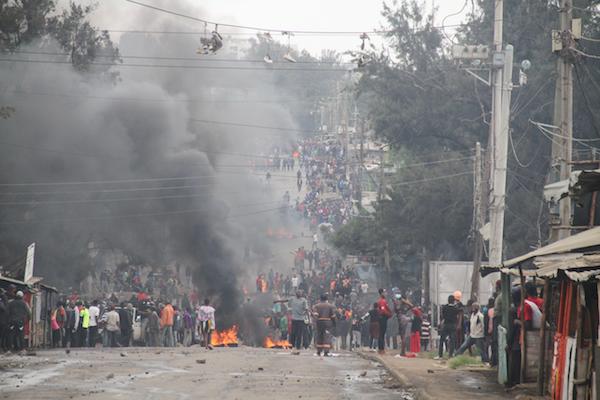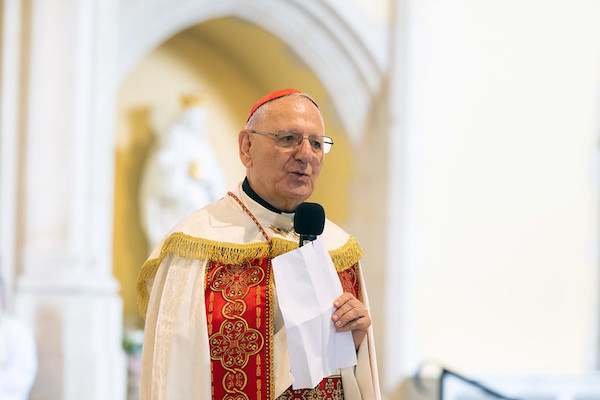The Iraqi government has repealed a decree which gave “institutional recognition” to the office of the Patriarch of Babylon, Cardinal Louis Raphaël Sako.
Decree 147 issued by the late President Jalal Talabani in 2013 recognised the patriarch’s appointment that year as head of the Chaldean Catholic Church and “responsible for the assets of the Church”.
Talabani’s successor Abdul Latif Rashid repealed the decree on 10 July. His office issued a statement saying that this “did not prejudice the religious or legal status of Cardinal Louis Sako” and insisting that he remained “highly-valued by the presidency of the republic”.
However, the patriarchate promptly denounced the decision. In a statement, it said that decrees granting special recognition to the patriarch dated to the Abbasid caliphate in the eighth century.
It continued: “We do not know the reasons behind this decision, which we consider a malicious political decision, not against the person of Patriarch Sako, who is known internally and externally for his patriotic positions and integrity, but rather against the ancient patriarchal position in Iraq and the world.”
Allies accused the government of compromising the patriarch’s right to administer Church assets and suggested that the decision was prompted by Rayan al-Kaldani (“the Chaldean”), who leads the Babylon Movement with which Sako has repeatedly clashed.
The movement originated in brigades formed to fight Islamic State in the Nineveh Plain, and now has a powerful base there which the patriarch says has hijacked Christian rights and property. The movement controls four of the five parliamentary seats allotted to Christians.
The patriarchate published a series of criticisms of the decision on its website, including a statement from the Iraqi Communist Party (the dominant force on the political left) which said that the revocation would encourage “more attacks against Christians on various official and social levels, since it will provide the opportunity for the manipulation of the Church’s endowments by influential and corrupt actors”.
The party demanded its abrogation and the issue of decrees to secure the property of all Christian denominations.
A coalition of Christian parties (the Assyrian Democratic Movement, the Popular Chaldean Syriac Assyrian Council, the Betnahrain Patriotic Union, the Nahrain Sons Party and the Assyrian Patriotic Party) issued a joint statement warning that the revocation would allow “the manipulation of Church assets by influential and corrupt parties who clearly want to seize them”.
On 15 July, Cardinal Sako issued an open letter in Arabic announcing that he would “withdraw from the patriarchal headquarters in Baghdad”.
Writing from a Church mission in Istanbul, he said he would not return to the capital but travel to a monastery in Kurdistan after the “unprecedented” government decision.
The Tablet understands that the patriarch would normally travel to the city of Erbil in the region later in the summer for the Chaldean synod of bishops. There is a patriarchal residence in the city.
On 17 July, the patriarch sent a statement to Aid to the Church in Need saying the government was pursuing a “deliberate and humiliating campaign” against him and the Church.
The Archbishop of Erbil Bashar Warda told the charity that the president had failed to explain the revocation, “leading the patriarch to interpret this action as punitive”.
On the same day, President Rashid held a meeting with the Vatican's chargé d’affaires in Baghdad, Fr Charles Lwanga Ssuuna.
His office issued a statement saying that the president had “made it clear that the abolition of the presidential decree [147] is solely intended to correct a legal and constitutional discrepancy” and assured Fr Ssuuna “that his eminence and the Chaldean community have nothing but respect from the Presidency of the Republic”.
It reported that Fr Ssuuna said: “The Holy See does not have any observations or objections regarding the procedures of the Presidency of the Republic.”
The apostolic nunciature also issued a statement regretting “the misunderstandings and inappropriate dealings concerning the role” of the patriarch.
It said that heads of Churches must have free control of their properties but said it “does not comment on whether this is to be ensured by presidential decrees or in another suitable way”.



 Loading ...
Loading ...